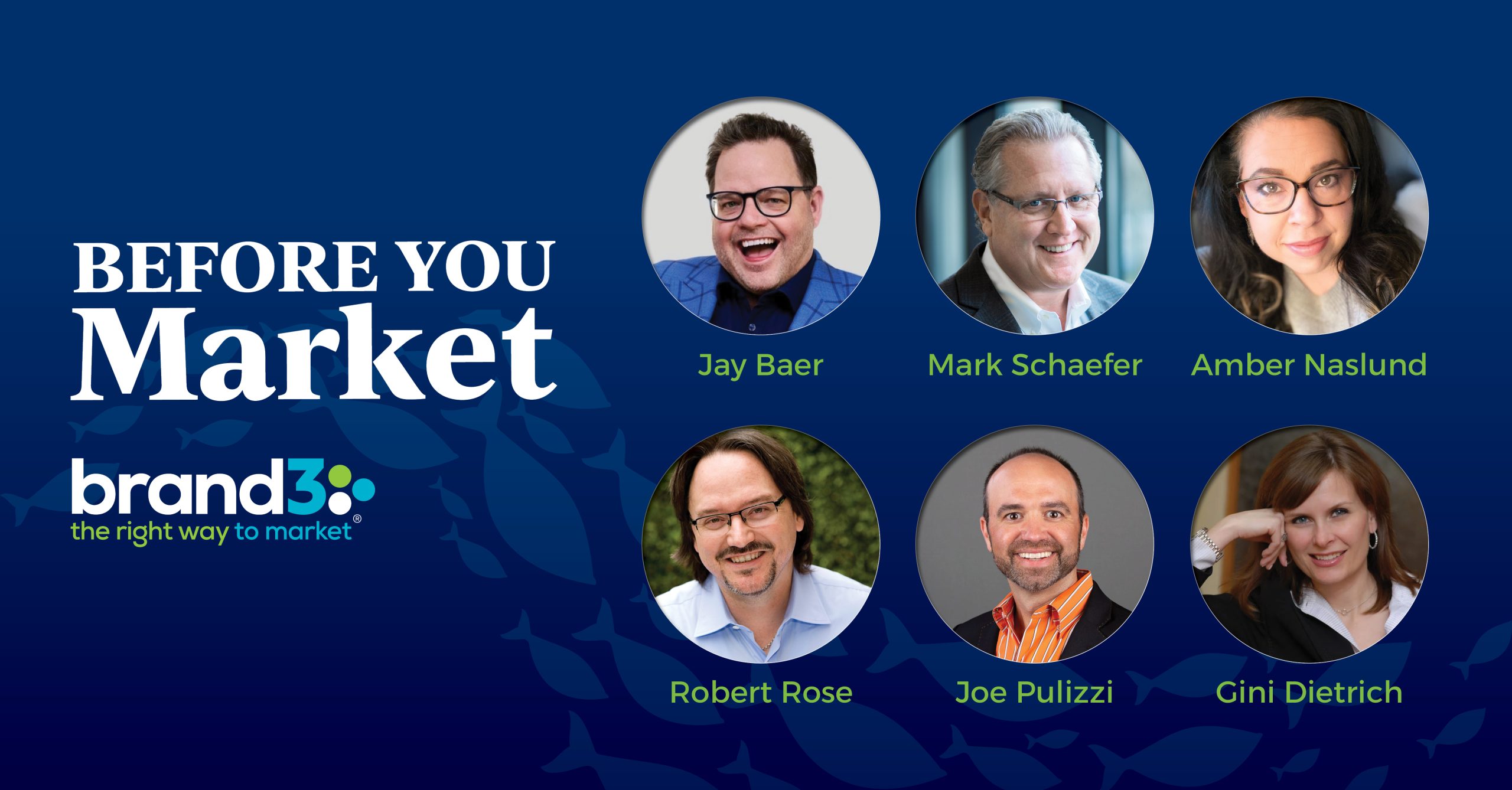
Brand3’s Tactical Marketing team attended Digital Summit in DC in April. They connected a week later to discuss their takeaways, favorite trends, and what they want to learn about next year. Here’s a look at their conversation:
Kayla, this was your first time going to anything like this. What did you think?
Kayla Reedy (Marketing Intern): I enjoyed it. It was a lot of information, but it wasn’t overwhelming. The speakers were great. They covered a good amount of information, and it wasn't too much in each session.
Emma, this was your second time going in person. What did you think about the difference this year versus in previous years when we've gone?
Emma Marzullo (Marketing Coordinator): I really liked how they laid it out this year. There was a clear path that you could take that had all of the different sessions for each big marketing category. So I attended the social media sessions, some of the ones on emails and blogs because that's what I love doing here.
I also really liked how they started off with a keynote speaker. Hearing Seth Godin talk was one of the highlights because I've seen him on LinkedIn a lot, and I know he puts out excellent content. So it was cool to hear from him in person.
Tav Laskauskas (Growth Strategist): When I knew he was going to be the keynote, I thought, “We have to go!” I saw him speak at a previous Digital Summit, which was amazing. And then I read his book This Is Marketing. His philosophy and approach align with how I view marketing.
I don't know about you guys because you're newer to this field. But I've worked with many people with different views of marketing and what it means. And there's this overlap of responsibility for sales. I love Seth's approach: marketing is really about creating connections. As marketers, we help connect humans and effect change.
Emma: All things AI.
Kayla: Yeah. In every session that I went to, there was some mention of AI.
Emma: No matter what the session was, they somehow tied it in. It will be really involved in everything we do and everything that's out there.
Kayla: I've been hearing a lot of the fear of other marketers – that our jobs are obsolete, and we're going to be replaced. In my strategic marketing class, we had one session about AI. We ran through ChatGPT and fed it prompts to see what it would produce for us.
Many people worry that it can do things better and faster than humans. So we really have to push our soft skills and those things that can't be taken away from us. And we need to make sure that we're learning how to use the tech, so we can keep our jobs.
If we learn how to work with it and know its strength and our strengths, we can move forward. But it'll be more of a helping tool rather than something to be afraid of.
Tav: I agree. If we learn to use and leverage the tool responsibly, we will be in a good place.
Emma: In one of the sessions, someone said you don't have to worry about losing your job if you're staying on top of the tech and learning how to work with it. It'll be an advantage to you.
As long as you are willing to go into that space and learn how to use it, it's okay. It's a tool. It's not going to take over the world completely.
Tav: Yeah. One of the talks that I went to that I loved was about SEO and AI. She talked about how you can leverage these tools like ChatGPT or Jasper AI to help you create content that can do well with SEO. But one of the things that is super important to remember is how search engines function.
They're looking for that human element because Google has humans influencing the AI and algorithms search engines use. And it is about user experience and what they're engaging with, what they're interacting with, what they are clicking on, and what they're doing with that information.
So while you can use a tool that can help you write content, you need to keep adding a human element so that it is contributing to the conversation, not just regurgitating what’s already out there. The speaker also said there’s a misconception that Google will automatically downgrade AI-generated content. That's not true.
What Google is looking for is high-quality content. They don't care how it's being created. The challenge with AI-generated content is that it's not original. It's extrapolating on data that it's received and learned from. But it's not contributing new insight to the conversation.
If we’re using it, we need to remember to apply and expand on those human elements. That way, we don't have to worry about the ethical implications of plagiarism. We don't have to worry about sounding like a machine.
We can still sound like people and then also make sure that we are continuing to contribute to a conversation, and that we are about creating those connections, and remembering that that is the philosophy behind what we do.
Kayla: Yeah, honestly, I hadn’t really considered accessibility options on social media. It is something that many of us overlook and don't think about because you can't physically see someone who's colorblind or otherwise visually impaired. We can apply little features to our posts, like describing the colors in the image or adding alt text.
Even if it only helps to include one person in your audience, it'll mean so much to them. It'll make them want to give positive feedback to the company. The speaker also mentioned there are browser extensions that you can check to see specific colors that are color-safe for color-blind viewers.
Emma: Yes, I enjoyed going to the social media sessions. A big one that stood out to me was a LinkedIn session: “Unlock Your B2B Brands’ Reach with Linkedin”. When using LinkedIn, it's important to focus on the people behind it because the platform was initially created to connect people with their peers, executives, and industry thought leaders.
So I'm excited to take that and work with it for us and our clients. We can leverage LinkedIn differently. Sometimes with businesses, we focus on the brand. And we lose focus on the people behind it.
Tav: Yeah, it's funny because when you're thinking about those B2C Platforms like Instagram, TikTok, and Facebook, you know that people react better when they see posts from businesses that include behind-the-scenes posts about people.
Linkedin is such a different platform because it's supposed to be very buttoned-up. The challenge for us is maintaining that level of expected professionalism but still providing that personal connection.
Emma: Yeah, it's a no-brainer that content from your thought leaders and executives will consistently outperform company pages. And like you said, people like seeing people on social media that posts with people in it are always going to perform better. It’s still important to include the branded content on your company page for validation.
Emma: Video was touched on a little bit this year, and some of the sessions briefly mentioned TikToks and Reels. But I do like learning about that because it’s so popular. I’d love to get more info on stats and trends to compare with some of our clients who use video. And then I love finding a good tech tool for social media and anything work-related.
Kayla: I know we touched on AI, but I want to see where we are now in a year. I want to know what differences are and how we work differently. Are we doing less? Are we using it in everyday life? Or if, like what Seth was saying, we leverage our soft skills, will AI significantly impact our jobs?
Tav: We're on the cusp of something big with AI. How do we use it? Where do we go? If this is the next big thing, what's around the corner?
It's going to depend on how consumers respond to AI-generated content. Can they tell the difference between something AI-generated and something somebody wrote? Will people even notice? Will it make that much of a difference to them?
I'm curious how it will affect search engines and how they operate. Some people are saying AI is going to kill search. I don't know if I agree with that. I think it could enhance it. It'll be cool to see where we go from here.
Ready to take your marketing from noise to clarity? Schedule A Call with the Brand3 Team to get started.


